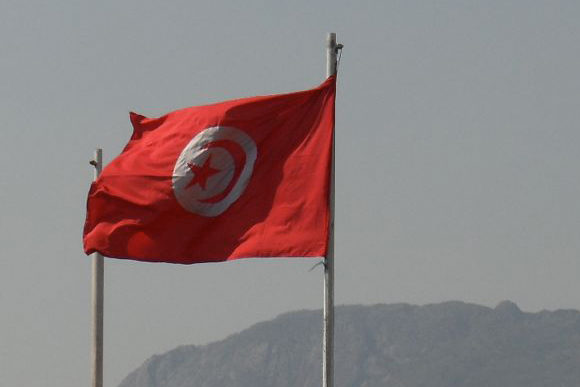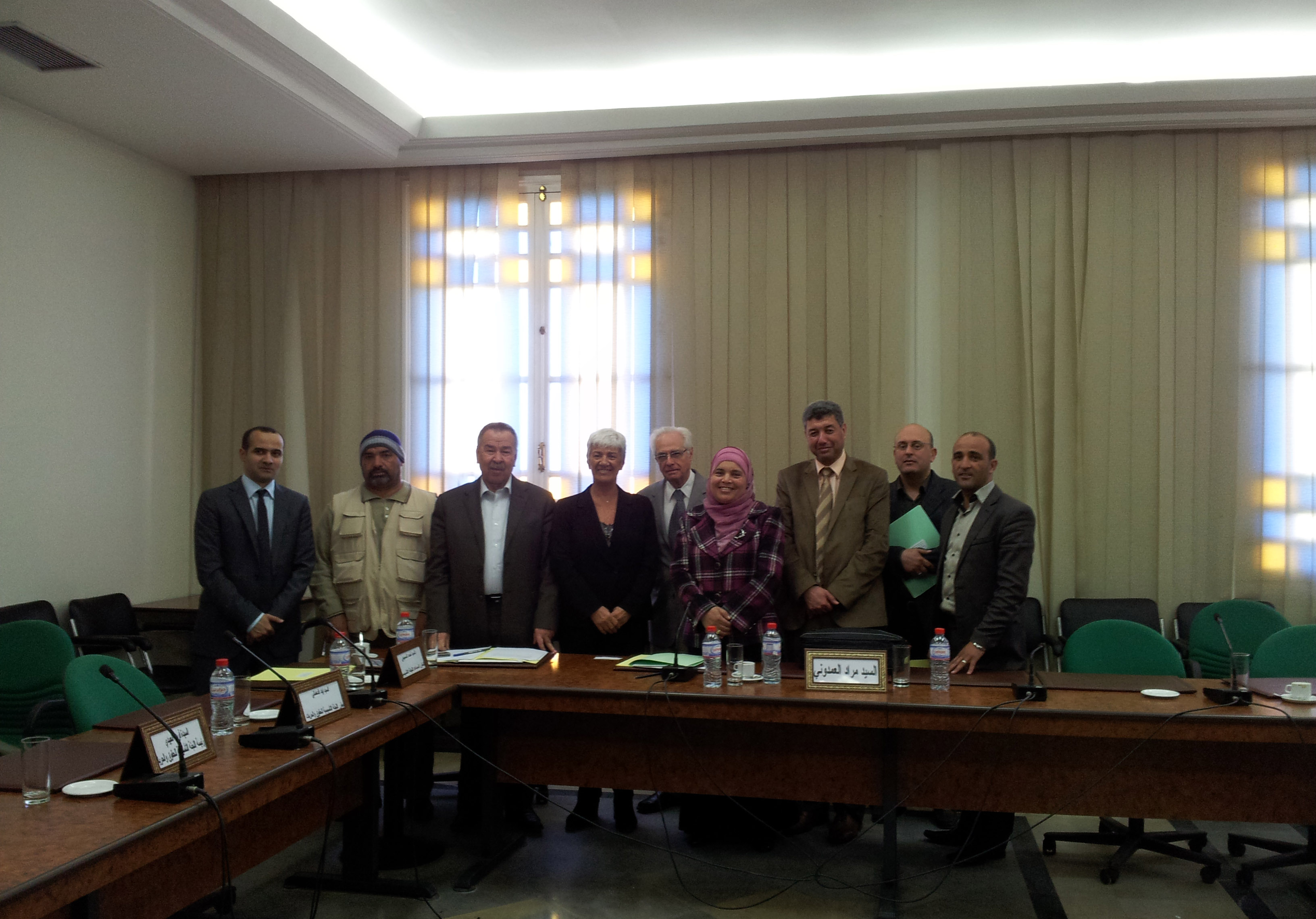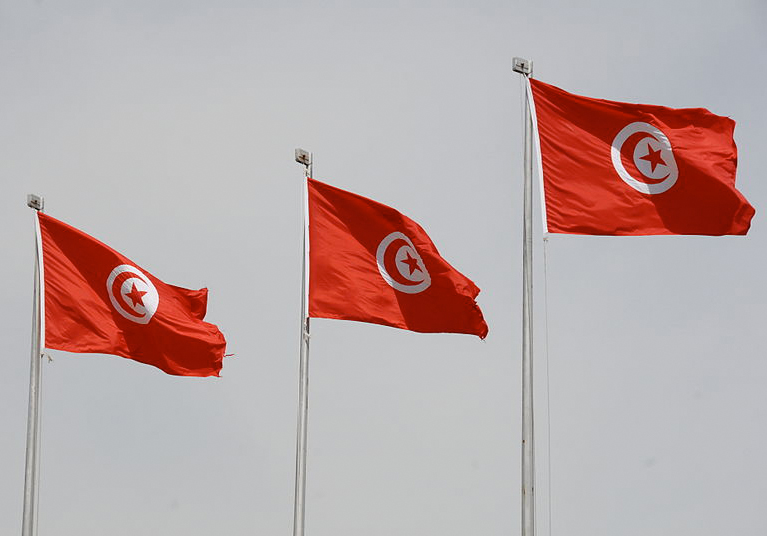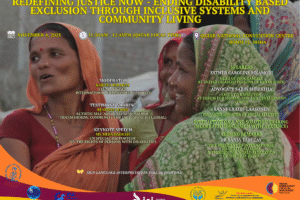
Sep 16, 2012
 On 14-15 September 2012, the ICJ participated in the Tunisian “Open Dialogue with Civil Society”, organized by the National Constituent Assembly (NCA).
On 14-15 September 2012, the ICJ participated in the Tunisian “Open Dialogue with Civil Society”, organized by the National Constituent Assembly (NCA).
The ICJ took the opportunity to present key recommendations to ensure constitutional and other legal guarantees for an independent, impartial and accountable judiciary in Tunisia. The ICJ therefore called on the NCA to:
- Ensure constitutional and legal provision for an independent High Judicial Council, with full competence to oversee the judiciary;
- Adopt a Statute of Magistrates that ensures the independence and impartiality of judges and guarantees their conditions of service, appointment, mandate, promotion and discipline, in accordance with international standards;
- Guarantee, in the Constitution and the law, the independence of the Office of the Public Prosecutor, including by ending the authority and control of the Minister of Justice over prosecutors;
- Limit the jurisdiction of military tribunals only to military offences and military personnel; and
- End the jurisdiction of military courts and military prosecutors to investigate and rule on cases involving violations of human rights, including those involving the armed and security forces.
The ICJ’s legal memorandum The Reform of the Judiciary in Tunisia, which examines the current legal framework governing the judiciary and contains a detailed set of recommendations for ensuring an independent judiciary in line with international law and standards, was submitted to the NCA (see below).
For more information:
Saïd Benarbia, Middle East & North Africa Senior Legal Adviser, ICJ, t +41 22 979 3817; e-mail: said.benarbia@icj.org
TUNISIA-Legal memo-legal submission-2012 (full text, PDF)
TUNISIA-Legal memo-legal submission-2012-french (full text, PDF)

Aug 20, 2012
 Joanne Cassar, who was assigned male at birth, legally changed her birth certificate to female in full compliance with Maltese national law. However, she was denied permission to marry her boyfriend.
Joanne Cassar, who was assigned male at birth, legally changed her birth certificate to female in full compliance with Maltese national law. However, she was denied permission to marry her boyfriend.

Aug 12, 2012
 Taddeucci, a national of Italy, and McCall, a national of New Zealand, are an unmarried same-sex couple who moved together to Italy to be close to Taddeucci’s family. But McCall was denied a residency visa.
Taddeucci, a national of Italy, and McCall, a national of New Zealand, are an unmarried same-sex couple who moved together to Italy to be close to Taddeucci’s family. But McCall was denied a residency visa.
The visa was denied on the grounds that he was neither a “spouse” nor a family member of an Italian citizen. The Italian courts refused to recognize their relationship, forcing the couple to leave Italy in order to be able to live together.
They applied to the European Court, arguing that their rights to non-discrimination and to the enjoyment of family life had been violated.
The ICJ, ILGA-Europe and NELFA submitted a joint third party intervention arguing that conditioning residency on marital status constitutes discrimination on the basis of sexual orientation, given that in many countries same-sex couples are denied access to marriage, and that unmarried couples are families regardless of formal legal status. As families, their relationship should be leally recognised and protected by the state.
Italy-Taddeucci_&_McCall_v_Italy-legal submission-2012-Eng (text in PDF)

Aug 8, 2012
 During the 81st session of the UN Committee on the Elimination of all forms of Racial Discrimination (CERD), the Committee will examine the combined first to third periodic reports of Thailand.
During the 81st session of the UN Committee on the Elimination of all forms of Racial Discrimination (CERD), the Committee will examine the combined first to third periodic reports of Thailand.

Aug 6, 2012
 In July 2012, the ICJ issued a legal memorandum in collaboration with the FIDH concerning economic, social and cultural rights in Tunisia.
In July 2012, the ICJ issued a legal memorandum in collaboration with the FIDH concerning economic, social and cultural rights in Tunisia.
This memorandum has been brought to the attention of the Tunisian Constituent Assembly and the Ministry for Human Rights and Transitional Justice for their consideration within the framework of the legal reform process that the country is currently undertaking.
The ICJ and the FIDH are convinced that this reform process, especially the elaboration of a new Constitution, offers Tunisia a unique opportunity to ensure the effective protection of all human rights in compliance with international law standards.
Tunisie CIJ-FIDH_NoteJuridiqueDESC-legal submission 2012 (Download in French)

 On 14-15 September 2012, the ICJ participated in the Tunisian “Open Dialogue with Civil Society”, organized by the National Constituent Assembly (NCA).
On 14-15 September 2012, the ICJ participated in the Tunisian “Open Dialogue with Civil Society”, organized by the National Constituent Assembly (NCA).










